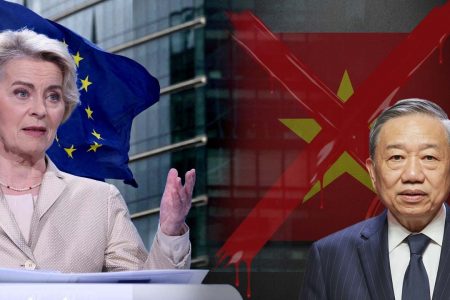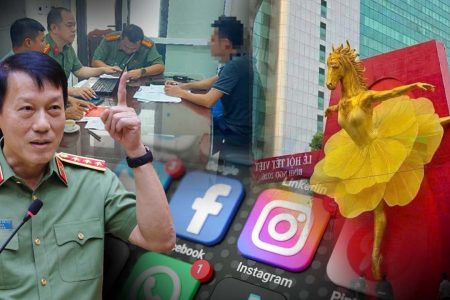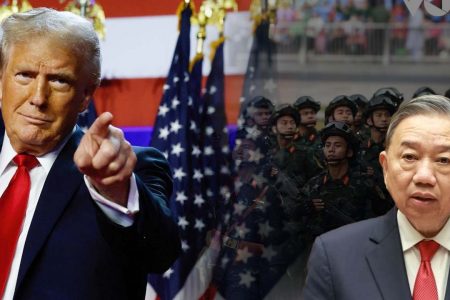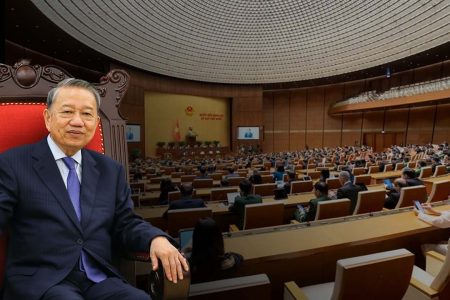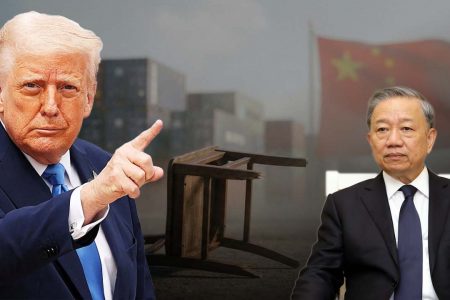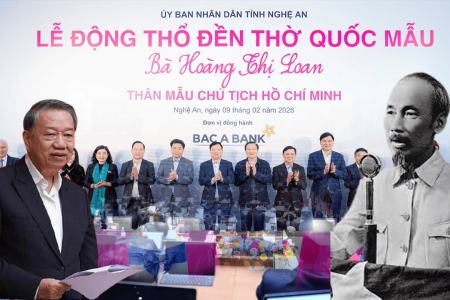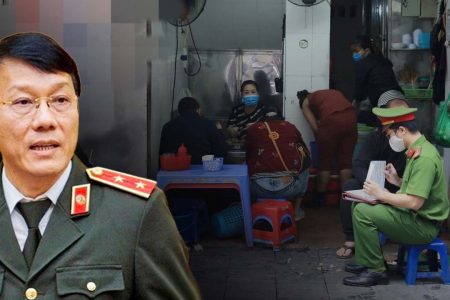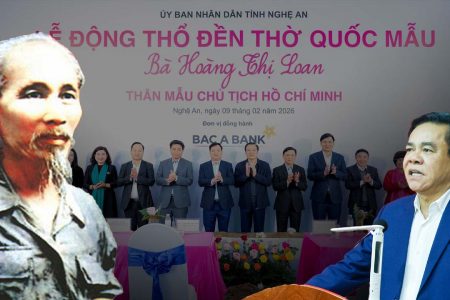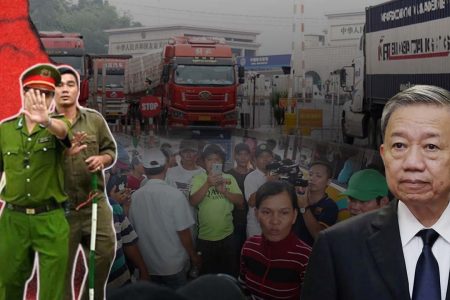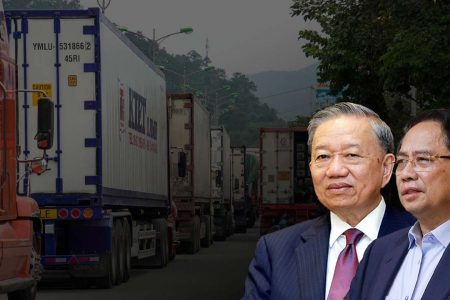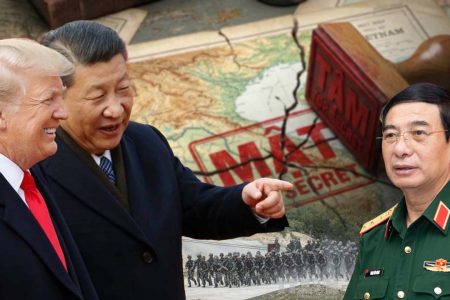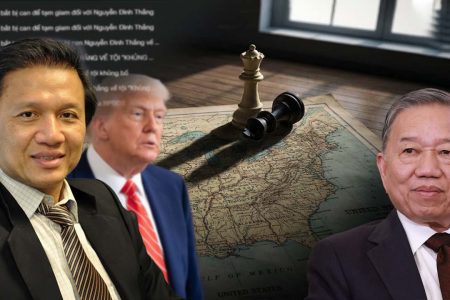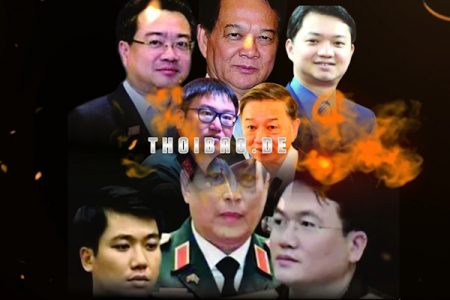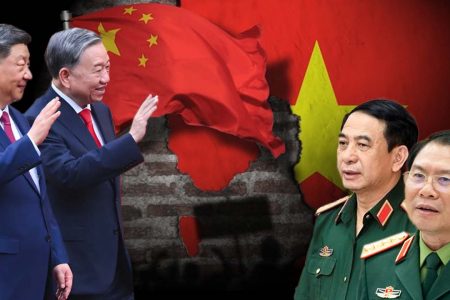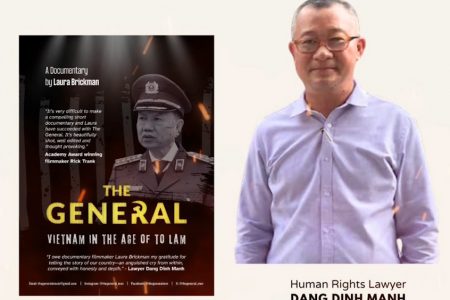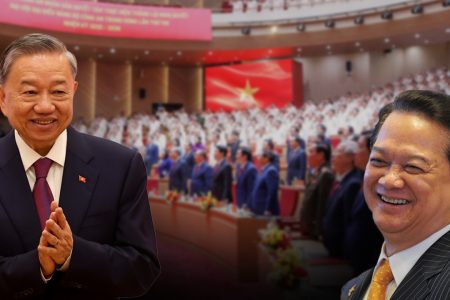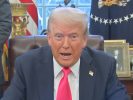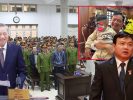The parade to celebrate the 50th anniversary of National Reunification Day (April 30, 1975–April 30, 2025) in Vietnam is an event of great historical significance. Accordingly, this event affirmed the unity and territorial integrity of the nation to bring the country into a new stage.
However, this event also raised public opinions, especially about what are considered „paradoxes“ in the views of the leaders of the Communist Party of Vietnam (CPV).
According to observers, the words in General Secretary To Lam’s speech, or the emotional statements of a former general, as well as the small number of international guests were extremely limited. In particular, there were public criticisms about the quality of VTV’s live broadcast.

That, inadvertently, turned the parade into a prism to look into the hidden corners of the ideological unity within the ruling party. This was considered a manifestation of internal conflicts between factions within the party, between the choice of reconciliation or hatred.
One of the highlights of the celebration was the use of language by General Secretary To Lam in his opening speech contrary to the familiar phrase that recently he chose terms of „reconciliation“ such as „war in Vietnam“ or „war in Vietnam.“
His speech at the April 30th Anniversary Ceremony really disappointed public opinion. Accordingly, with aggressive and undiplomatic words, General Secretary To Lam repeatedly used the phrase „American imperialism“ in the context that the United States has been and is a comprehensive strategic partner of Vietnam.
Specifically, General Secretary To Lam stated: „The US imperialists quickly replaced the French colonialists in intervening in Vietnam, carrying out the plot to divide our country, turning the South of our country into a new type of colony.“

This is not only a „serious“ change in language but also a message of a „turnaround“ that is completely contrary to the ambition to bring the country into a „new era“ following the progressive trend of Western countries and the United States as the former police chief had previously emphasized.
Moreover, right after his speech, there was a statement by Major General Tran Ngoc Tho, former Chief of Staff of Military Region 7, who used strong language, described as „full of hatred“ towards the United States. Likewise, the victory of April 30, 1975 was the achievement of General Secretary Le Duan, but no one dared to mention him because of concerns about Beijing.
That immediately attracted public attention, raising many questions about the lack of unity in the foreign policy stance of General Secretary To Lam and the party.
According to international analysts, this difference could be the result of a „deep“ conflict within the party. To Lam, in his highest leadership role, was forced to convey a message of „hatred“ lacking in diplomacy and solidarity, towards public opinion at home and abroad.
The very small participation of high-ranking international delegations is also a matter of great concern. With the presence of high-ranking delegations from Laos, Cambodia, Cuba, Belarus, and China butthe absence of major powers such as the United States, Japan, Russia, or the G7 countries has raised opinions that the event lacks international appeal.

Some comments from the international press have even described this as a sign of isolation and the ineffectiveness of General Secretary To Lam’s current foreign policy.
In the context the Military faction has been trying to show off its prestige to return with the ambition of regaining the central position in the political system in Vietnam in addition to the alliance of the „conservative“ pro-Beijing faction within the party and the undisguised support of China, that has pushed General Secretary To Lam and the Ministry of Public Security faction into a defensive position, instead of gaining the upper hand as before.
The parade to celebrate the 50th anniversary of April 30 has shown more clearly than ever the hidden power relations within the Vietnamese political system at the present time.
Tra My – Thoibao.de



